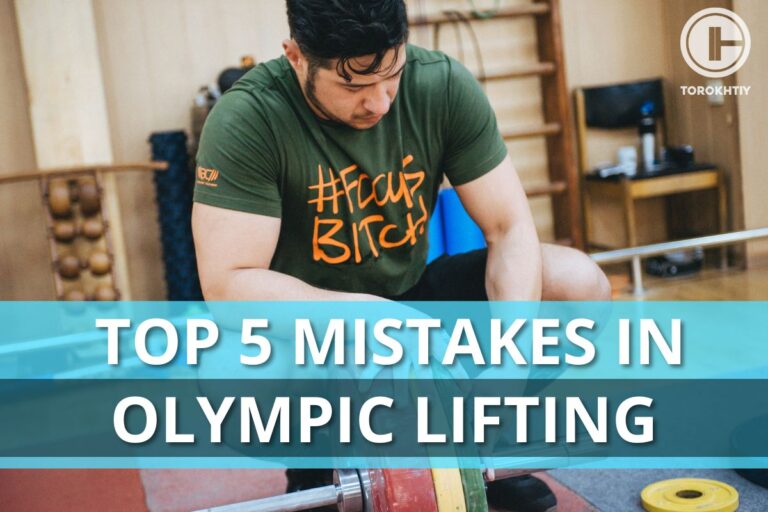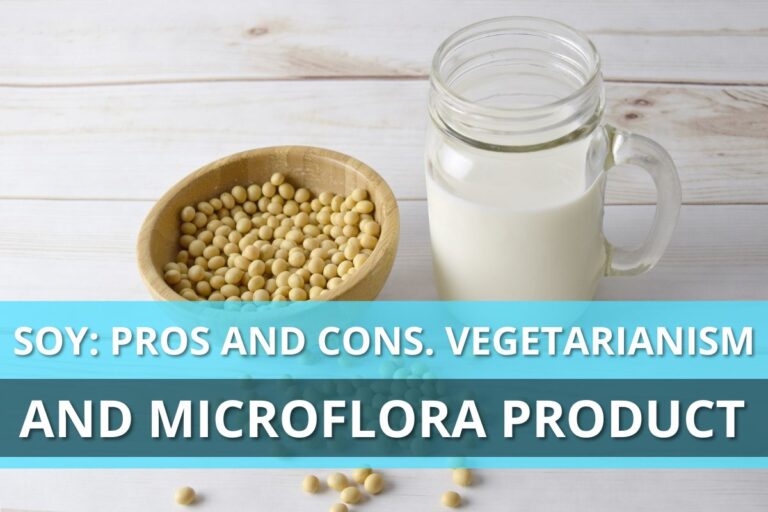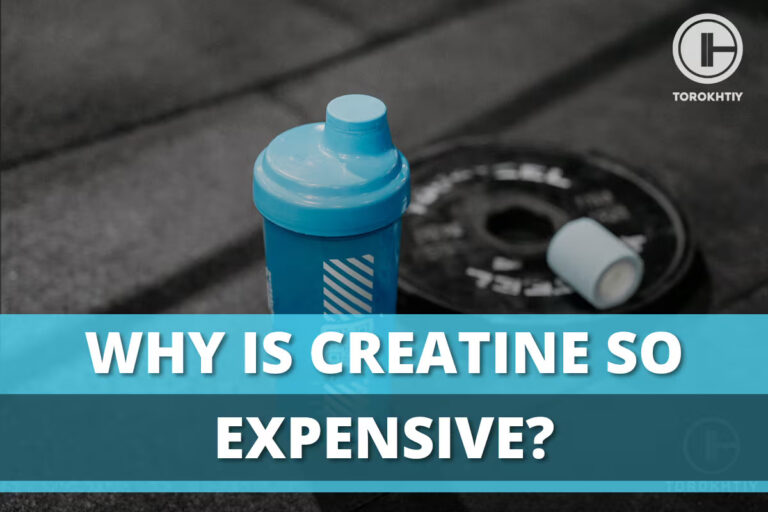Should You Take Creatine While Cutting?
If you’ve been taking creatine for a while and you’re looking to lose some body fat, you’re probably wondering, should you take creatine while cutting? With one of the effects of creatine saturation being weight gain, it may seem like creatine is purely a bulking supplement. In this article, we’ll be covering whether or not this is true, and why it may actually be beneficial to stay on creatine during a cut. If you’re wondering “does creatine help with cutting?” Keep reading to have all your questions answered.
Should you take Creatine while Cutting? Weight gain from creatine is entirely water weight, so cutting out creatine won’t help you lose any body fat. Creatine also has performance-enhancing benefits that will be useful to you on a cut.
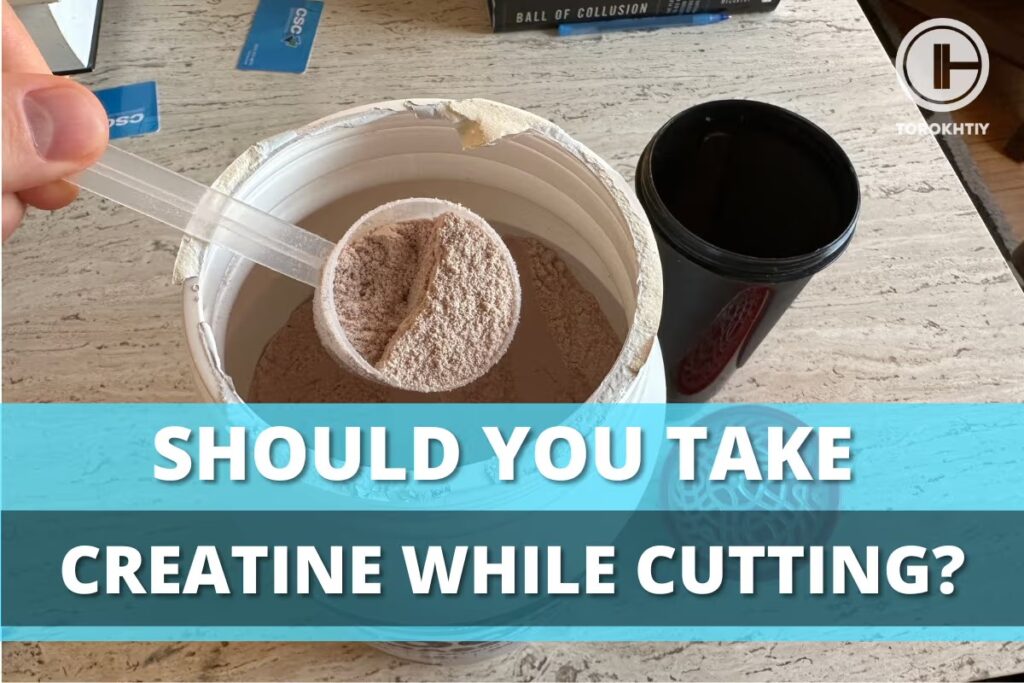
Should You Take Creatine While Cutting?
For a very short answer, yes you should take creatine while cutting. The main reason someone may be interested in not taking creatine during a cut is the weight gain associated with creatine supplementation. Creatine users will usually put on 3+ pounds within the first couple weeks of supplementation. While this makes it great for those bulking, here’s why this weight gain isn’t an issue for people cutting.
This shouldn’t be a factor when cutting because the weight gain associated with creatine isn’t fat, but entirely water being stored in the muscles. When cutting, you’re ideally trying to lose as much fat as possible while maintaining your muscle mass. With the added water weight from creatine supplementation mainly being stored in your muscles, you will in turn appear fuller and more muscular on a cut than you would without creatine. While your total body weight will remain slightly higher when on creatine, this will not affect the amount of fat you have on your body.
So, if you’re wondering “can you cut on creatine?” If you’re trying to remain as full and muscular as possible during a cut, creatine supplementation will actually be greatly beneficial.
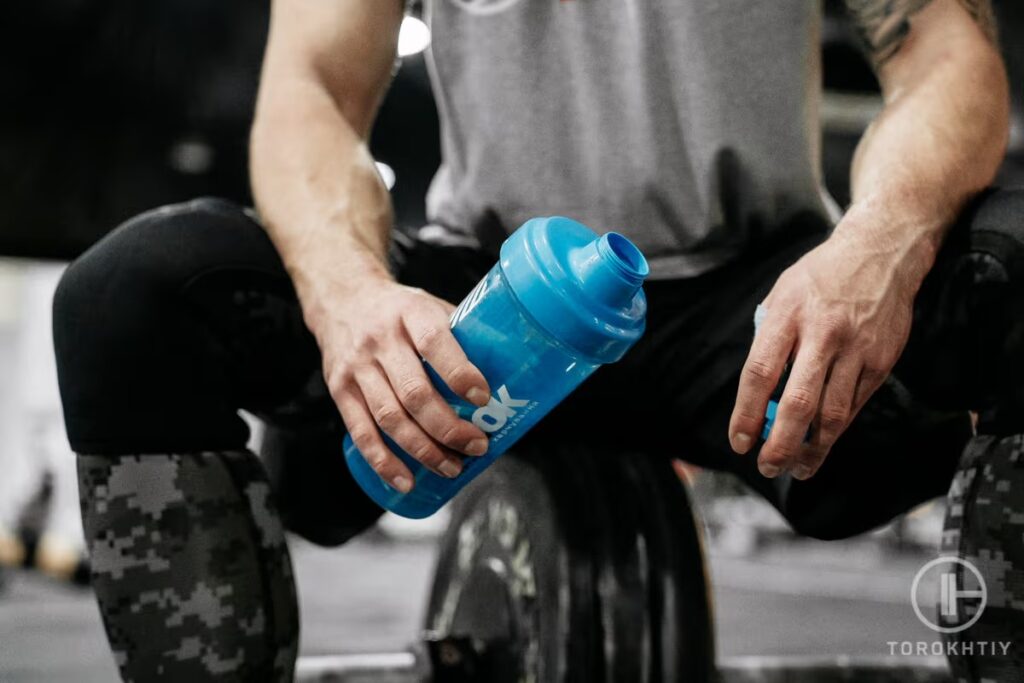
How Does Creatine Help During a Cutting Period?
While the extra weight from creatine shouldn’t be a major factor during a cut, you may still be wondering about the other benefits of taking creatine on a cut. These include maintaining total muscle mass and strength, as well as improving performance and recovery. Here are these factors covered in more detail.
1. Helps Maintain And Build Muscle Mass
First, as mentioned above, the added weight from creatine is entirely water weight stored in your muscles, meaning it is not being stored as fat during a cut. By keeping this weight on, you will appear more muscular than you would without creatine supplementation. On top of this, consistent creatine supplementation is known to increase gains in muscle mass, which is exactly what you’re trying to preserve on a cut.
2. Helps To Maintain Strength
Similar to the above point about muscle mass, it’s very easy to lose significant amounts of strength on a cut. With creatine helping to build strength, supplementation will keep you stronger than you would be without it. Especially if you’ve been taking creatine on a bulk, cycling off on a cut will lead to even more significant losses in strength than you’d experience otherwise.
One study in football players demonstrated that creatine supplementation led to significant gains in bench press 1 rep max, as well as significant gains in lean mass. This shows that creatine supplementation will likely prove beneficial when trying to maintain strength while eating in a caloric deficit. While you may lose some strength during a cut, creatine will make these losses somewhat less significant.
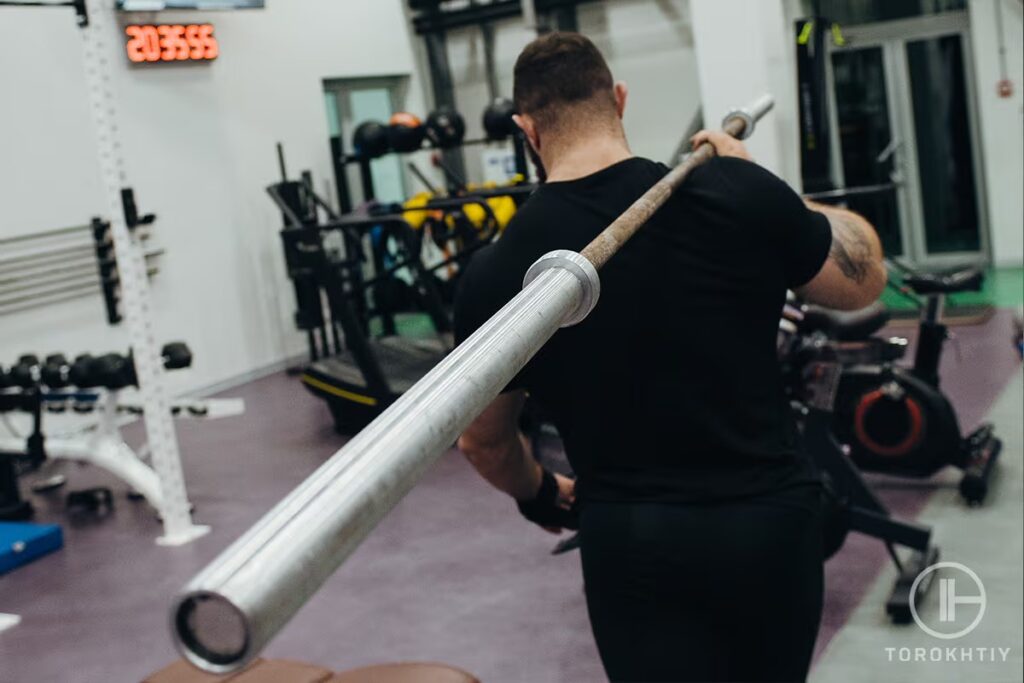
3. Supports High Intensity Performance During Training
When you’re in a calorie deficit, it’s often difficult to maintain a high level of performance in your workouts. Because your body does not have as much energy to use as it does on a bulk, it’s helpful to have a supplement which can aid you in maintaining high intensity in your workouts.One of the most potent benefits of creatine supplementation is improving high intensity exercise performance, making it ideal for this purpose.
In fact, creatine has been shown to increase maximal power output by 5-15%, and increase work performed during sets of maximal effort by a similar rate. This shows that creatine will significantly improve your ability to train at a high rate of intensity – something that’s espcially important while cutting.
4. Helps To Recover After Intense Training
Finally, a frequently forgotten benefit of creatine is its ability to help with improving recovery and reducing muscle damage after a tough workout. Especially when you aren’t consuming as many calories during a cut, recovery can be an issue.
One study found that those supplementing with creatine maintained significantly more strength when recovering from intense exercise. This, alongside lower plasma creatine kinase levels in the blood showed significant improvement in recovery in those who are supplementing with creatine. On top of all the other benefits, the added recovery makes creatine a super beneficial supplement for cutting.
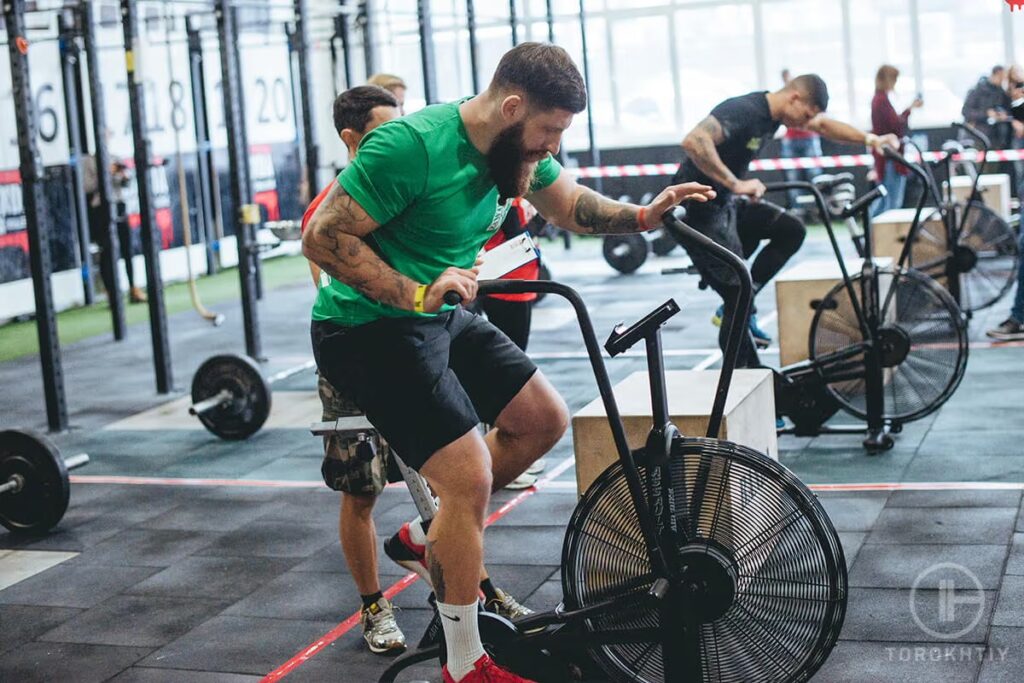
Possible Drawbacks of Taking Creatine While Cutting
Creatine is widely regarded as one of the safest sports supplements available, and as mentioned above there are a ton of benefits to staying on the supplement while cutting. So, in which scenarios is creatine not beneficial while cutting?
The main reason someone would potentially want to cut out creatine while cutting is if they’re trying to get their total body weight as low as possible to make weight for a competition. In this case, the extra several pounds of water weight from creatine would be significant. If they were interested in stopping creatine to make weight, they would likely need around 4-6 weeks with no creatine to lose the water weight associated with creatine use. While this may be necessary to make weight, here’s why it might not be the best idea.
The main reason you probably don’t want to stop creatine supplement before a competition are all the benefits the supplement has for athletic performance. Especially if you’re competing in a sport like weightlifting or powerlifting, the improvements in high intensity exercise performance you get from creatine may be the difference between hitting your lifts and failing. This is especially true if you’ve been using creatine throughout your training.
Also, once you stop taking creatine, it will take another 2-4 weeks of supplementation for your muscles to be fully saturated again. All in all, you’re looking at 2 months where you’re missing out on the benefits of creatine, just to lose an extra couple of pounds.
If you’re looking to make weight, we recommend staying on creatine for all its potential benefits. Trying to lose the weight in another way, or maybe compete at a slightly higher weight class. Other than the weight cutting scenario outlined above, there aren’t many other drawbacks to taking creatine on a cut.
What Type of Creatine Should I Take While Cutting?
If you’re new to taking creatine, you may be confused by all the different types of creatine out there. Luckily the answer is very simple: you should always take creatine monohydrate, and ignore all other types. Monohydrate is creatine in its most basic form. It is the cheapest, most effective, and most well-researched form of creatine available.
From HCL, Magnesium Chelate, Kre-Alkalyne, and a wide range of others, there are tons of creatine variations available. While they often make claims about being superior to monohydrate, these are often simply marketing tactics to charge you more for what’s essentially the same product. These alternatives are often twice as expensive as creatine, and very rarely have any evidence to back up their claims.
So, if you’re looking for the best form of creatine to take while cutting – or for any other purpose – we recommend sticking with monohydrate 100% of the time.
Best Creatine – Transparent Labs Creatine HMB
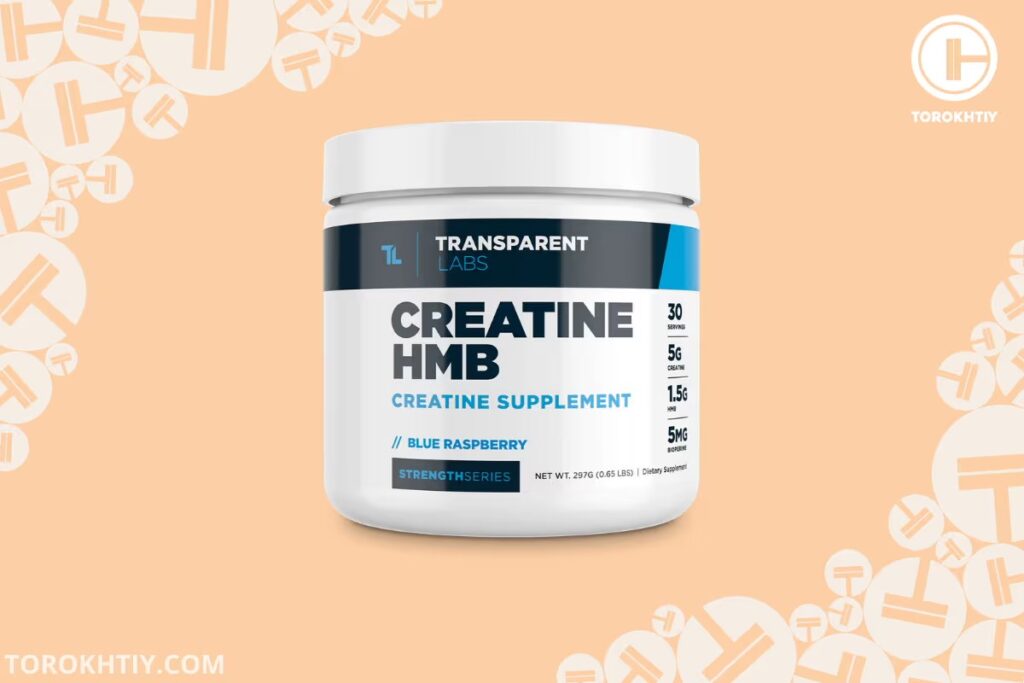
If you’re wondering what brand of creatine we recommend, check out Transparent Labs’ Creatine HMB. If you’ve read our other lists, you’re probably already familiar with Transparent Labs and their line of consistently high-quality products. Let’s see how Creatine HMB stacks up with the rest.
First off, you can expect a solid 5g of creatine monohydrate in each serving, which will be the perfect standard daily dose for most people. However, what truly makes this supplement more deluxe is its additional ingredients.
The main extra ingredient is very useful for those cutting who may be struggling to get enough nutrients in. Transparent Labs contains 63% of your daily recommended Vitamin D, which actually has numerous benefits ranging from muscular strength, to bone health, and disease prevention. This supplement also contains HMB – hence the name – and although they claim this ingredient has similar effects to creatine, its benefits appear to be minimal at best.
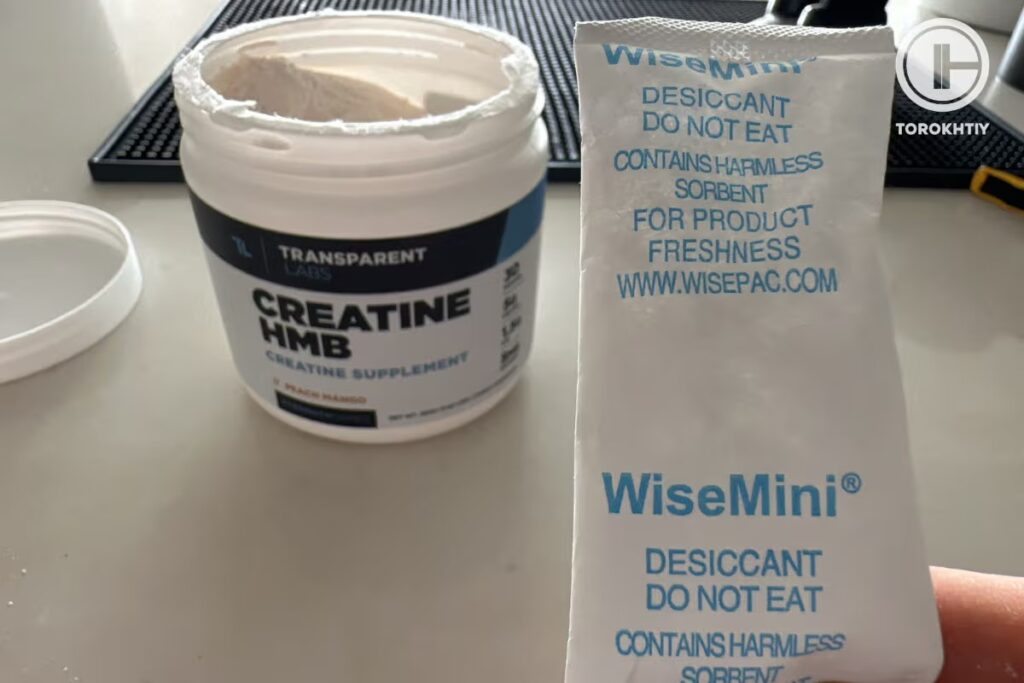
Another reason this supplement is superior to other creatines on the market is its long list of flavor options. If you’ve been looking for a creatine supplement, you’ve probably noticed most are exclusively unflavored. Transparent Labs, on the other hand, has 11 flavors to choose from including Tropical Punch, Watermelon, and Peach Mango. There’s also an unflavored option available if you want to keep it basic.
The main downside to this product is its hefty price tag. Each serving of Transparent Labs will cost you around $1.50. While there are more basic supplements available for well under $1 per serving, the inclusion of Vitamin D, as well as all the additional flavors make this supplement more than worth it.
FAQ
Should I Take Creatine While Trying To Lose Belly Fat?
Yes! The added weight gain experienced from creatine supplementation is not body fat, it is water stored in the muscles. Creatine will actually benefit you trying to lose belly fat because of properties including increased high-intesnity exercise performance, maintenance of muscle mass, and improved recovery.
Can You Get Lean On Creatine?
Absolutely. Because the added weight from creatine is largely water weight stored in the muscles, it does not affect your body fat percentage. You can just as lean on creatine as you could without it. As a bonus, your muscles will appear fuller on creatine, meaning the more fat you lose on a cut, the more muscular you are likely to appear.
Should You Avoid Creatine When Cutting?
No! As outlined above, the benefits to creatine on a cut include the maintenance of strength and muscle mass, as well as improved recovery and high-intensity exercise performance. These are all areas you may struggle with while trying to lose fat in a caloric deficit. This makes creatine one of the best supplements you can take while on a cut.
Is Creatine Good For Cutting?
Yes! Despite weight gain associated with the supplement, taking creatine while cutting is actually beneficial because of the numerous positive effects it has on muscle mass, strength, performance, and recovery.
Conclusion
Overall, if you’re wondering “can you take creatine while cutting?” We strongly recommend staying on the supplement while trying to lose weight. Creatine is one of the most beneficial supplements for nearly all athletes – including those on a cut. This is because effects of creatine like improved high-intensity exercise performance and improved recovery are especially relevant when your body has less energy on a cut. While you may be concerned about weight gain associated with creatine, it is largely water weight stored in the muscles, meaning staying on creatine during cut season will not affect your total body fat percentage.
If you’re interested in taking creatine, we recommend trying out Transparent Labs Creatine HMB for a high-quality, deluxe creatine supplement. Are you looking to go on a cut soon and debating taking creatine? Have you been taking creatine for a while, or just thinking about getting started? Let us know your thoughts in the comments below!
Also read:
- What Type of Creatine Is Best
- How Much Creatine Hcl Should I Take
- Why Is Creatine So Expensive
- Does Creatine Expire
- Does Creatine Work Without Working Out
- Does Creatine Increase Strength
- Glutamine vs Creatine
- L Carnitine or Creatine
- Best Electrolyte Powder for Athletes
References:
- Richard B. Kreider, Douglas S. Kalman, Jose Antonio, Tim N. Ziegenfuss, Robert Wildman, Rick Collins, Darren G. Candow, Susan M. Kleiner, Anthony L. Almada & Hector L. Lopez, “International Society of Sports Nutrition position stand: safety and efficacy of creatine supplementation in exercise, sport, and medicine” Journal of the International Society of Sports Nutrition volume 14, no. 18 (2017).
- RICHARD B. KREIDER2, ROBERT C. KLESGES2, DEAN LOTZ3, MIKE DAVIS3, EDWARD CANTLER3, PAMELA GRINDSTAFF1, LEIGH RAMSEY1, DARYLL BULLEN1, LARRY WOOD1, ANTHONY L. ALMADA, “Effects of nutritional supplementation during off-season college football training on body composition and strength” Journal of Exercise Physiology 1, no. 2 (1999).
- Richard B. Kreider, “Effects of creatine supplementation on performance and training adaptations” Journal of Exercise Physiology 244, 89–94 (2003).
- Matthew B Cooke, Emma Rybalka, Andrew D Williams, Paul J Cribb &Alan Hayes, “Creatine supplementation enhances muscle force recovery after eccentrically-induced muscle damage in healthy individuals” Journal of Exercise Physiology 13 (2022).
- Ashley Green, “Expert: Creatine’s Impact Goes Far Beyond The Weight Room” Texas A&M University College of Education and Human Development, http://surl.li/lidqu.
- John Smith, CREATINE MONOHYDRATE (AIS SPORTS SUPPLEMENT FRAMEWORK, 2021).
- Guillermo Escalante, Adam M. Gonzalez b, Dean St Mart c, Michael Torres a, Jacob Echols a, Mariesha Islas a, Brad J. Schoenfeld, “Analysis of the efficacy, safety, and cost of alternative forms of creatine available for purchase on Amazon.com: are label claims supported by science?” Science Direct, http://surl.li/ldwoz.
- “Vitamin D” The Nutrition Source, https://www.hsph.harvard.edu/nutritionsource/vitamin-d/.
- Javier Sanchez-Martinez 1, Alejandro Santos-Lozano 2, Antonio Garcia-Hermoso 3, Kabir P Sadarangani 4, Carlos Cristi-Montero, “Effects of beta-hydroxy-beta-methylbutyrate supplementation on strength and body composition in trained and competitive athletes: A meta-analysis of randomized controlled trials” National Library of Medicine, https://pubmed.ncbi.nlm.nih.gov/29249685/.
Why Trust Us?
With over 20 years in Olympic Weightlifting, our team does its best to provide the audience with ultimate support and meet the needs and requirements of advanced athletes and professional lifters, as well as people who strive to open new opportunities and develop their physical capabilities with us.
By trusting the recommendations of our certified experts in coaching, nutrition, dietology, and sports training programming, as well as scientific consultants, and physiotherapists, we provide you with thorough, well-considered, and scientifically proven content. All the information given in the articles concerning workout programming, separate exercises, and athletic performance, in general, is based on verified data. We ensure that you can rely on our professionals’ pieces of advice and recommendations that can be treated as personalized ones which will benefit you and fully meet your needs.
The product testing process is described in more detail here
Author: David Sasha Schulz
Doctor of Chiropractic, BSc Human Biology, CSCS
Strength coach (CSCS) – 10 years
Sasha is a Chiropractor and Kinesiologist practicing in Kelowna, BC, Canada. He has been practicing Chiropractic since 2019, integrating manual therapy, strength training and programming principles, and nutritional strategies to get his patients optimal results. He currently scratches the competitive itch in fitness, and the occasional endurance race, and plays golf and snowboards for fun. He has an interest in all strength and fitness-related sports.


